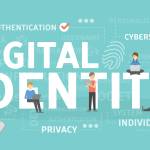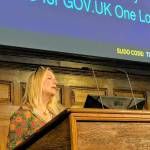Australia
OCR Labs has been named as one of Australia’s first ‘entirely private’ accredited digital identity service providers.
Stuart Robert, minister for employment, workforce, skills, small and family business, announced that the Australian-based business was the first to be accredited through the government’s Trusted Digital Identity Framework (TDIF).
The framework sets the standards, rules and guidelines for digital identity services based on international best practice. To receive accreditation, organisations or agencies must undergo a series of assurance evaluations.
“It has become increasingly important in this digital age to be able to establish trust, particularly online,” Robert said in a statement. “We want Australians to have confidence that their information is private and secure, regardless of who holds it.”
TDIF accreditation means that private sector clients of OCR Labs, operating in sectors like banking, finance and telecommunications, can trust that their intensity information can be verified and is protected, the minister added.
OCR Labs sought accreditation as an ‘identity service provider’ under the new government framework in February this year. The company subsequently met 262 different framework requirements across protective security, privacy assurance, risk management, usability and accessibility measures.
Philippines
Updates from the Philippine Statistics Authority (PSA) reveal that more than six million people have now completed Step 1 online registration for the Philippines Identification System (PhilSys) national digital ID, reports Biometric Update.
The Philippine News Agency (PNA) writes that as of August 8, a total of 6,012,508 had gone through the preliminary online process for the Philippine Identification (PhilID) card.
The online digital ID registration was introduced in April as part of measures by the country’s authorities to contend with the coronavirus pandemic by helping solve the problem of congestion at physical centres.
So far, over 37 million people overall have completed the Step 1 which principally has to do with the collection of demographic information of registrants, which over 16 million others are done with the Step 2, for which biometric information is captured.
Afghanistan
Thousands of Afghans struggling to ensure the physical safety of their families after the Taliban took control of the country have an additional worry: that biometric databases and their own digital history can be used to track and target them.
UN Secretary-General Antonio Guterres has warned of “chilling” curbs on human rights and violations against women and girls, and Amnesty International on Monday said thousands of Afghans – including academics, journalists and activists – were “at serious risk of Taliban reprisals”.
After years of a push to digitise databases in the country, and introduce digital identity cards and biometrics for voting, activists warn these technologies can be used to target and attack vulnerable groups.
“We understand that the Taliban is now likely to have access to various biometric databases and equipment in Afghanistan,” the Human Rights First group wrote on Twitter last Monday.
“This technology is likely to include access to a database with fingerprints and iris scans, and include facial recognition technology,” the group added.
The US-based advocacy group quickly published a Farsi-language version of its guide on how to delete digital history – that it had produced last year for activists in Hong Kong – and also put together a manual on how to evade biometrics.
Tips to bypass facial recognition include looking down, wearing things to obscure facial features, or applying many layers of makeup, the guide said, although fingerprint and iris scans were difficult to bypass.
Jordan
If you liked this content…
The digital identity program for Jordanian citizens will roll out in the coming few days. Said Jordan’s Minister of Digital Economy and Entrepreneurship, Ahmed Al-Hanandeh.
The digital identity aims to facilitate Jordanian citizens’ day-to-day requests such as issuing or renewing passports, national ID, official documents without the need to leave home.
Every Jordanian citizen enrolled in the digital identity program will also need to create an electronic signature to use in all digital touchpoints with public sectors except land and other critical sectors as it requires physical attendance.
Jordan’s government will gradually roll out the digital identity program across the country according to citizens’ needs; for example, citizens who have monthly requests from one of the public sectors will be first to enroll in the digital identity program.
Malaysia
TeleSign, a global leader in digital identity and programmable communications, today announced a new partnership with Digi Telecommunications Sdn Bhd (Digi) to extend its fraud detection and identity coverage in Malaysia. The partnership will help to safeguard Digi’s mobile users against Account Takeover (ATO) through SIM Swap, registration fraud, and other fraud-related activities through TeleSign’s Score and PhoneID solutions. The partnership expands TeleSign’s already expansive global reach across billions of mobile users throughout the Asia-Pacific region.
The Malaysian digital market is seeing a disruptive digital transformation. A 2020 Independent Research study predicts that 80 percent of Malaysian firms will implement or expand their digital transformation by the end of 2021. Current operational models have been challenged to safeguard users’ identities and provide better user experiences through both mobile and web. Digital Identity solutions help to maximize safeguards while minimizing friction by empowering organizations with risk intelligence to inform their verification and authentication challenges to protect users.
Vietnam
Vietnam began to issue 50 million chip-based digital ID cards with embedded biometrics to eligible citizens beginning in February of this year, and Entrust has been revealed as a provider of issuance systems and software for the project, along with strategic partner MK Group.
The new national digital ID cards replace versions issued in 1999, 2012, and 2016 with 9-digit numbers, 12-digit numbers and barcodes respectively. The biometric chip version is expected to provide more secure and standardized authentication. The card can be used to log into government and private services, for authentication to government entities and banks, and for digital signing.
“We are pleased to be selected as the technology partner for this nationwide project to transform Vietnam’s citizen ID system into one that is more standardized, secure, and digitally advanced,” said Entrust regional VP for Asia Pacific and Japan Angus McDougall. “We view this partnership with MK Group as a strong step towards the future of trusted identities in Vietnam.”
MK Group subsidiary MK Smart developed the chip’s operating system and applications in line with ICAO standards and local requirements, according to the announcement.
Vietnam has been pushing steadily ahead with its digital identity agenda, recently releasing draft guidelines for digital ID and authentication.
Australia
The NSW government has announced the members of its Digital Identity Advisory Council, with several (ex-)consultants part of the 18-strong board.
NSW’s newly formed Digital Identity Ministerial Advisory Council (DIMAC) has been established to provide strategic advice on the state government’s digital ID agenda. NSW Digital and Customer Service Minister Victor Dominello, who will serve as DIMAC chair, said that bringing together experts from a range of sectors would best ensure that personal privacy and security considerations would be enshrined in all policy-making design.
“Being able to prove and trust identity digitally is a key foundation for modern society and drives productivity and innovation,” Dominello stated in a release.
He continued; “The government is implementing a transformational digital agenda. We need to surround ourselves with top experts to remain ahead of the game. Privacy and trust are the hallmarks of our democracy and will continue to remain at the forefront of service delivery. We’ve already demonstrated how digital products like the Digital Driver Licence actually improve and enhance identity protection.”
Among the experts is Miguel Carrasco, a Boston Consulting Group veteran who currently serves as the global leader of the BCG Centre for Digital Government, along with heading up the firm’s Technology Advantage practice. Previously, he was CEO of BCG Platinion in the Asia-Pacific region and managing director of BCG’s Canberra office, having started his consulting career with Andersen Consulting (now Accenture) in 1997.
Also contributing to the roadmap will be Steven Wilson, founder and managing director of Lockstep Consulting, a specialist research and advisory on emerging identity technologies founded in Sydney in 2004. An international authority on digital identity and authentication, Wilson brings over three decades of IT and security industry experience, including directorial stints at PwC and KPMG focused on the public infrastructure segments.







